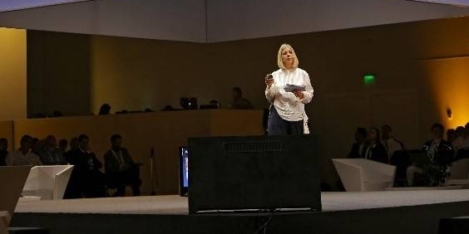November 8, 2018
CIPD launches new standard and profession map to reflect the changing face of HR
 The CIPD has launched a new and fully updated Profession Map which sets out the knowledge, behaviours and values underpinning today’s people profession in the modern world of work. The new Profession Map – the first since the 2013 version of the CIPD’s original Profession Map – has been designed to reflect the changes in the world of work and the priorities and role of people professionals. Major trends, from the changing demographics and needs of the workforce to alternative employment models and increasing use of technology, have challenged us to innovate and adapt our people management practices and approaches. The Map will evolve in line with the world of work, updating when the landscape shifts and keeping experts in people, work and change future-fit for years to come.
The CIPD has launched a new and fully updated Profession Map which sets out the knowledge, behaviours and values underpinning today’s people profession in the modern world of work. The new Profession Map – the first since the 2013 version of the CIPD’s original Profession Map – has been designed to reflect the changes in the world of work and the priorities and role of people professionals. Major trends, from the changing demographics and needs of the workforce to alternative employment models and increasing use of technology, have challenged us to innovate and adapt our people management practices and approaches. The Map will evolve in line with the world of work, updating when the landscape shifts and keeping experts in people, work and change future-fit for years to come.
















 Robots will not as feared steal people’s jobs and will eventually improve productivity, but they will undercut workers’ contribution sufficiently to depress their wages. According to the third report in Barclays Impact Series, titled
Robots will not as feared steal people’s jobs and will eventually improve productivity, but they will undercut workers’ contribution sufficiently to depress their wages. According to the third report in Barclays Impact Series, titled 
















November 18, 2018
What The Midwich Cuckoos can teach us about Millennials
by Mark Eltringham • Comment, Workplace
John Wyndham’s 1957 novel The Midwich Cuckoos is the story of a fictional English village in which, following an unexplained event that causes everybody within Midwich to fall unconscious, all of the women in the village fall pregnant and 61 children are subsequently born all at the same time. The children bear absolutely no physical resemblance to their parents, with pale skin, blond hair and piercing eyes. As they grow older it also becomes apparent that they are strange, emotionless and have a telepathic bond with each other. It’s not much of a spoiler to tell you that things don’t go well. The only rationale for what had happened to create the children in the first place is an unexplained incident of xenogenesis – the birth of offspring unlike their parents. Something similar must have happened on a global scale from the beginning of the 1980s onwards, at least based on what we are told about Millennials.
(more…)